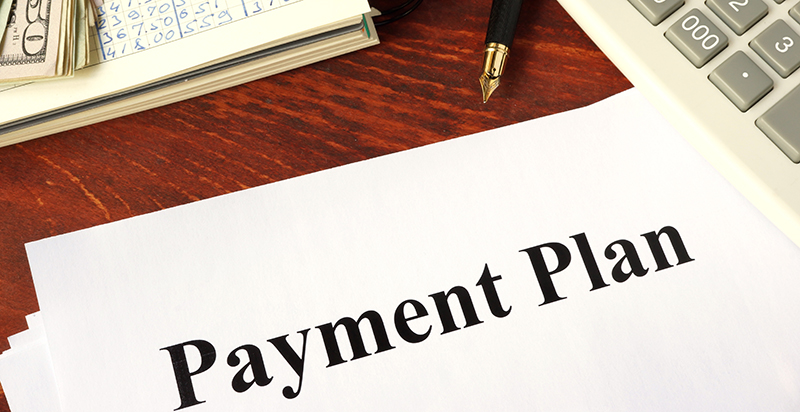How to Set Up a Payment Plan with the IRS
December, 09 2022 by Steve Banner, EA, MBA
Although the IRS would like to receive immediate payment in full on all debts owed to it, it also understands that not every person or business is able to meet that goal. Circumstances such as illness, natural disasters, unemployment, and business downturns can not only contribute to creating the debt in the first place, but may also prevent the taxpayer from being able to pay off their debt all at once. For this reason, the IRS has established payment programs designed to allow a personal or business debt to be paid off over an agreed period of time. In this article, we will discuss how to set up payment plans for both individuals and businesses.
Payment plans for individuals
Depending on your particular circumstances, you might qualify for either a short-term payment plan in which you pay your entire debt within 180 days, or a long-term payment plan where you make monthly installment payments for a period longer than 6 months. The details of your tax situation will also determine whether you can make your payment plan application online, by phone at 1-800-829-1040, by mail, or in person. For example, you may qualify to apply online as follows:
- Short-term payment plan – if you owe less than $100,000 in total tax, penalties and interest.
- Long-term payment plan – if you owe $50,000 or less in total tax, penalties and interest and you have filed all current and prior required tax returns.
But no matter whether you apply online or by some other method, the next step after filing your application is to wait for a response from the IRS. The IRS may deny your application, approve it without any changes, or it may make its approval subject to certain conditions. For example, if you have a tax debt greater than $25,000 and have applied for a long-term payment plan, the IRS will require that all monthly payments are made automatically by direct debit from your bank account.
In some instances, the IRS may wish to gather more information about your overall financial situation before it makes a decision on your application. In this case, it would ask you to complete Form 433-F, Collection Information Statement and attach it to your application.
Payment plans for businesses
Independent contractors and sole proprietors who are in need of a payment plan should apply as individuals, as described above. All other businesses should follow the steps outlined below.
Just as we have seen with individual taxpayers, businesses can choose from several different methods to file their application for a payment plan. However, unlike individuals, short-term payment plans are not available for businesses. And a business may qualify to file its application online if it owes $25,000 or less in total tax, penalties and interest and it has filed all current and prior required tax returns.
Once again, the IRS may deny the application, approve it unconditionally, or approve it with certain conditions. For example, businesses with a tax debt greater than $10,000 will be required to make their monthly payments automatically by direct debit from a bank account.
If the IRS requires more information about the financial standing of the business before it can make a decision about the payment plan application, it may request the completion of Form 433-F, Collection Information Statement for Businesses.
Even though we have just seen that the IRS offers several pathways for individual taxpayers to set up a plan to pay down their tax debt, sometimes the process is not quite as simple as it looks. As can be imagined, navigating payment plan applications and approvals without help can be quite tricky depending on your specific tax situation. But you don’t have to do it all on your own because you can contact TaxAudit and speak to an experienced tax professional for a cost-free, obligation-free assessment of your case. For a more detailed look into payment plans, please visit our website. Our experienced tax professionals will help you figure out the best IRS tax debt settlement option for your situation.





